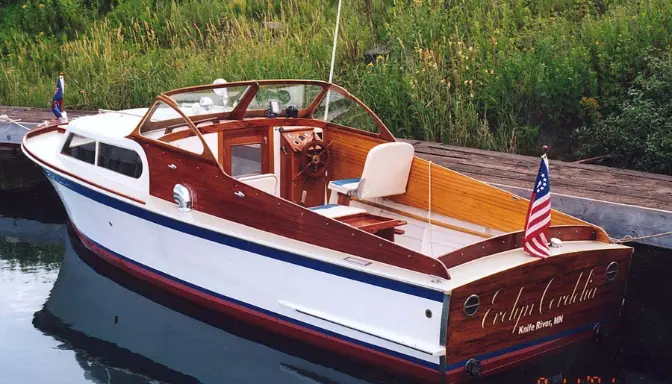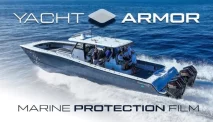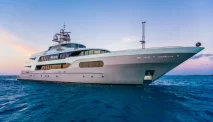Here are some questions to ask yourself before buying a small boat:
How much can you afford to spend?
Your budget will determine the type, size, and quality of the boat you can buy. You will also need to consider the additional costs of owning a boat, such as fuel, maintenance, storage, registration, and insurance. You can find small boats for sale for as low as $500, but you may also need to spend more to get the features and performance you want.
How experienced are you as a boater?
Your boating skills and knowledge will affect the type and size of the boat you can handle. If you are a beginner, you may want to start with a simple and easy-to-operate boat, such as a jon boat, a skiff, or a dinghy. If you are more experienced, you may want to upgrade to a more advanced and powerful boat, such as an aluminum fishing boat, a pontoon boat, or a car-topper boat. You may also want to take some boating courses or lessons to improve your skills and safety.
What do you want to do with your boat?
Your boating activities and goals will influence the type and size of the boat you need. If you want to fish, you may want a boat that has a fishing-friendly layout, such as a jon boat, a skiff, or an aluminum fishing boat. If you want to cruise, you may want a boat that has a comfortable and spacious layout, such as a pontoon boat, a dinghy, or a car-topper boat. If you want to explore, you may want a boat that can access shallow and narrow areas, such as a canoe, a kayak, or an inflatable boat. If you want to have fun, you may want a boat that can support water sports, such as a pontoon boat, a skiff, or a car-topper boat.
What are your personal preferences?
Your boating style and taste will also affect the type and size of the boat you want. You may prefer a boat that has a certain look, feel, or performance. You may also prefer a boat that has certain features, such as a cabin, a toilet, a kitchen, or a sun deck. You may also prefer a boat that is made from a certain material, such as wood, fiberglass, or metal. You may also prefer a boat that is new or used, depending on your budget and expectations.
How to buy the best small boat for you?
Once you have decided on the type and size of the boat you want, you can start looking for small boats for sale. Here are some steps to follow:
Do your research
Before you buy a boat, you should do some research on the boat market, the boat models, and the boat dealers. You can use online resources, such as websites, blogs, forums, and reviews, to learn more about the different types of boats, their features, their prices, and their pros and cons. You can also use online tools, such as boat finders, boat calculators, and boat comparison charts, to narrow down your options and compare different boats. You can also visit boat shows, boat expos, and boat clubs, to see and test different boats in person, and to talk to boat experts and owners.
Set your budget
Before you buy a boat, you should set a realistic budget that you can afford and stick to. You should consider not only the initial cost of the boat, but also the ongoing costs of owning a boat, such as fuel, maintenance, storage, registration, and insurance. You should also factor in the costs of accessories, equipment, and upgrades that you may need or want for your boat, such as a trailer, a cover, a GPS, a radio, or a fish finder. You should also have some contingency funds for unexpected expenses, such as repairs, replacements, or emergencies.
Find a seller
Once you have a budget and a shortlist of boats that you are interested in, you can start looking for sellers that have small boats for sale. You can find sellers through various channels, such as online platforms, classified ads, newspapers, magazines, or word-of-mouth. You can also find sellers through boat brokers, boat dealers, or boat auctions. You should choose a seller that is reputable, reliable, and trustworthy, and that offers a fair price, a good warranty, and a clear title. You should also check the seller’s reputation, reviews, and ratings, and ask for references, testimonials, or feedback from previous customers.
Inspect the boat
Before you buy a boat, you should inspect the boat thoroughly and carefully, preferably with the help of a professional boat inspector or mechanic. You should check the boat’s exterior, interior, engine, electrical system, plumbing system, and safety equipment, and look for any signs of damage, wear, tear, corrosion, or malfunction. You should also check the boat’s documents, such as the registration, the title, the bill of sale, and the service history, and make sure they are valid, complete, and accurate. You should also ask the seller for any information, such as the boat’s age, mileage, usage, maintenance, repairs, accidents, or modifications, and verify them with the documents.
Test the boat
Before you buy a boat, you should test the boat on the water, preferably with the seller or a qualified boat operator. You should test the boat’s performance, handling, stability, and comfort, and see how it responds to different speeds, directions, and conditions. You should also test the boat’s features, such as the steering, the throttle, the brakes, the lights, the horn, the radio, and the instruments, and see if they work properly and smoothly. You should also test the boat’s safety equipment, such as the life jackets, the fire extinguisher, the flares, and the anchor, and see if they are in good condition and easy to access.
Negotiate the price
Once you are satisfied with the boat, you can negotiate the price with the seller. You should do some research on the market value of the boat, and compare it with the asking price, the condition, and the features of the boat. You should also consider the demand and supply of the boat, and the season and location of the sale. You should be respectful, reasonable, and confident, and offer a fair and realistic price that you can afford and justify. You should also be prepared to walk away if the seller does not agree to your offer, or if you feel uncomfortable or pressured by the seller.
Close the deal
Once you and the seller agree on the price, you can close the deal and finalize the purchase. You should sign a written contract that outlines the terms and conditions of the sale, such as the price, the payment method, the delivery date, the warranty, and the return policy. You should also pay the seller the agreed amount, either in cash, by check, by credit card, or by financing. You should also receive the boat’s documents, such as the title, the registration, the bill of sale, and the service history, and transfer them to your name. You should also receive the boat’s keys, accessories, equipment, and manuals, and inspect them for any defects or discrepancies.
How to finance and insure your boat?
Buying a small boat can be a significant investment, and you may need some financial assistance to afford it. You may also need some protection to cover your boat in case of damage, loss, or liability. Here are some options to finance and insure your boat:
Financing
If you do not have enough cash to buy a boat, you can apply for a boat loan from a bank, a credit union, a boat dealer, or a boat lender. A boat loan is similar to a car loan, where you borrow a certain amount of money and pay it back over a period of time, with interest. To qualify for a boat loan, you will need to have a good credit score, a steady income, and a low debt-to-income ratio. You will also need to provide some information about the boat, such as the type, size, model, year, and price.






